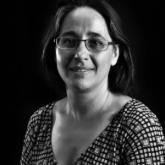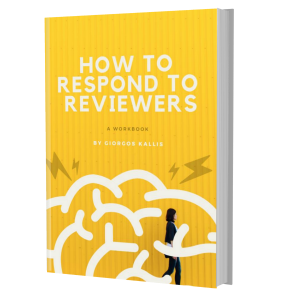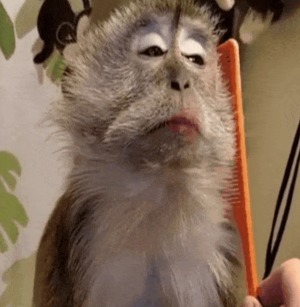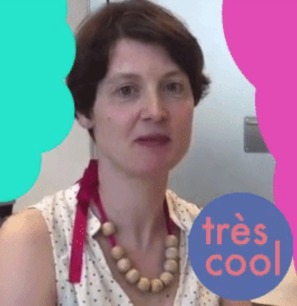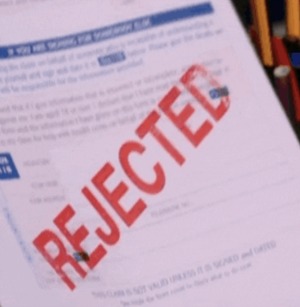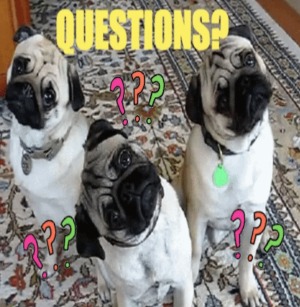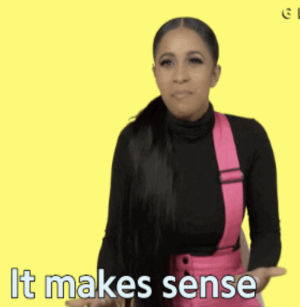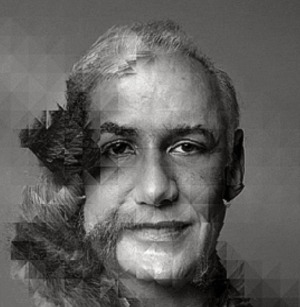Publish a lot by collaborating a lot – an interview with Viki Reyes
Victoria Reyes is an ICREA professor at my institute, ICTA, in Barcelona. Viki has a PhD in anthropology from the University of Florida and is recipient of two consecutive European Research Council grants, the latest one a consolidator grant to study the contribution of local knowledge to climate change research. The amount of papers Viki publishes is a miracle - just in 2018 I count 18 (!) peer-reviewed articles. And they are all distinct, original empirical contributions, in top journals, no recycling of the same tired idea. I take the opportunity to ask Viki about her secret.
GK: How do you do it, Viki? 18 papers in a year! Are you a super-woman?
VR: Well… I would rather said I have a super-team! Take a careful look to the list of articles. How many single-authored do you see? Not many… not in 2018, and you will not find them in previous years. Consciously, I have built my scientific career stressing collaboration, not competition… Collaborating with students, with other colleagues, with other projects. Collaborating sometimes without getting much in exchange, and routinely requesting (and organizing) collaboration. And guess what? No matter how much we are told that the scientific career is extremely competitive… I found that collaboration gets better results. And is much fun, too!
GK: Many of your articles report on long-run empirical programs that collect data from the same communities. Do you want to talk a little bit more about this research model, and how it differs from the models of researchers who might work on a case by case basis? Do you plan the publications in advance of the research project, or after you’ve built a database?
VR: I would say it goes both ways. Even after working for 20 years in the same place of the world, there are many questions which have not been answered. So, many of the papers from this long-term project are hypotheses-driven. In other words, we design the research in advance, go and collect specific data to answer our questions, and publish whatever we find. But, working in the same area for so long also raises unforeseen opportunities on the spot. For example, I am now participating in research looking at the health and nutrition of Tsimane’ children. In my last visit to the area I was talking with my colleague and we were commenting on how much children’s diets have changed since I first visited the area in 1999. From there to the draft of a paper comparing the original data on children’s diets I collected in 1999 with the new data we have collected in 2017, there was only a short distance.
GK: You co-author many articles with your whole research team. How does this work, and what are some of the obstacles with group writing? How do you arrange the authors’ order?
VR: To me, the key to success is to have a clear “publication policy” written, discussed, and agreed by everyone in the team who might have an interest in publishing. For each project I lead, before any data is collected, I discuss with the team a document in which we outline who will take the lead in analysing/writing which data, who should be invited to which publications, what are the contributions needed for co-authorship, and for how long such rules are valid. I try to create a sense of cooperation in the team, so most people contribute to most papers. We all respect the golden rule in the team “first author decides”. I think the approach results in stronger papers and fewer conflicts.
GK: What do you advice novice writers to pay most attention to when writing a paper?
VR: Focus on the story line. Article writing is a form of storytelling. Many novice writers want to put too much in one paper, jump from one topic to another - they try to bring the inherent complexity of the world to the paper. And the reader gets lost. The best papers are the ones that have a clear storyline. So my main advice would be to focus on the story line first and always: what is the question you are answering? All the elements in the paper should be linked to that one single story you think the world has to hear.
GK: Have you ever had a paper rejected, and if yes, how did you react?
VR: Oh yes, many… But I should also add, I have had most of them eventually accepted. One paper was rejected in 5-6 journals before it got actually accepted. I kept improving it with reviewers’ suggestions and persisted in sending it, because I thought there was a message there that needed to be told. Eventually it got accepted. The truth is that, even now, having a paper rejected generates a sense of anxiety and failure. I think the trick is to learn to detach the paper from yourself. As a novice writer, you put so much of yourself in the paper and when a rejection arrives, it is hard not to take it personally. With time you learn to separate yourself from your creation, which allows you to see rejection as an opportunity to improve the work, not as a personal failure.
GK: An existential question, Viki. Why do you write?
VR: For two reasons. One, because I want to contribute to the understanding of the world. I do think science can help us understand the world and then transform it in ways that are meaningful and fair for people and nature. I go by the scientific motto “unpublished work, unfinished work”. I think it is my responsibility to communicate research findings, new ideas, insights… and the way we do so in science is by writing papers. So, the first answer is because I think it is my duty, so to say. But the second reason why I write is because I like it. I do like the process of writing. Writing allows me to unfold my creativity (very limited in the artistic sense, by the way). I like the feeling of “entering into the flow”, feeling how an idea materializes in words, improving it. I just like it.
GK: Do you enjoy doing research, or writing about it more?
VR: I cannot separate the two. Indeed, my most creative time is when I am in the field. This is when most of my ideas arise… every time I go to the field I come back with a list of new papers I “need” to write.
GK: You spend a lot of time in the field, in some very remote indigenous communities. Do you write while there?
VR: I wrote most of my dissertation while in the field, some of it handwritten. But this was during a five year period when I was mostly in the field. Unfortunately, now I cannot commit to such long periods of fieldwork (Golden rule of the family: No more than 4 week-ends away from home). But, as I already said, I do get many of my ideas in the field. It is probably a combination of having some free mental space (away from day-to-day worries), new mental connections from seeing different things, and interactions with different colleagues. Often I manage to prepare a couple of outlines while in the field.
I remember once that I was in the Bolivian Amazon co-teaching a course for anthropology graduate students with Ricardo Godoy, my PhD advisor. We were using solar panels to charge our computers, but we ran out of power. Ricardo then suggested we should all start writing a paper. Students complained because they did not have their computers and handwriting was just too challenging. I was able to organize my ideas in a decent outline. Ricardo started writing the introduction, without a computer, without references to check, just from his head!
GK: You publish your research mostly in academic journals. Do you think it is important to bring some of these results back to the communities you are studying?
VR: Indeed! In the same way I have publication policies, I also have policies on how the results should be brought back to the communities and countries where we work. I encourage all the people in the team to build alliances with local universities or NGOs and to share with them our work, so the results also stay in the country. I request all the people in the team to find appropriate ways to return results to the local communities where they work. This has taken different formats: radio programs, posters, calendars, booklets, maps, brochures, video recordings, articles in local press. It really depends on the situation, but I do request that each research proposal includes a section on “giving back”, and this section is treated with the same consideration than any other section, so I do not take the student seriously unless this section is both in the calendar and in the budget.
GK: You coordinate large projects, with multiple researchers, spend time in remote communities, and write and publish a lot. How do you organize your time to make all this possible?
VR: well… I am not sure I have a clear answer to this question. Many things happen because of collaboration. I am probably easy at delegating tasks to people in the team. I set in my mind clear priorities that relate to my own research (i.e., fieldwork has priority over attending a conference; my own/student’s papers have priority over invited contributions, etc.). One thing I also try to do (although I could certainly improve on this particular one) is to say no to things that are not central to my research. One of my advisors once told me that to reach Ithaca I would have to avoid the siren song, which is probably one of the most difficult steps in the journey. I think of that every time I get invited to be in a commission, give a keynote speech, write a contribution for an edited book or special issue, take another student on board. Is this new request something that I want to do, or I am just being seduced by the sirens who are trying to convince me that giving this keynote is more important than finishing what I have already committed to? It is a difficult decision, because part of our job is also “academic service” and we all have to contribute to be in commissions, review papers, etc… So, it is important to consider each request. But the key is to say No to many of them!
GK: Does success take a personal toll? Do you manage to keep clear boundaries between work and personal life?
VR: I would not say my family has clear boundaries between work and personal life. My partner is also a scientist and my three daughters are very interested in science too. Dinner conversations are often about new ideas for a paper or how to improve a high school research project. Recently, my daughter went to do an internship with food scientists and came back explaining how she had been discussing the results of one of my papers with them. I guess she was listening with interest when I was explaining it over dinner time…
We do often take family time together, but whether we are cooking, taking care of the garden, or folding the laundry, one or the other will end up asking “why hot water removes dirtiness from cloth?” or “why people prefer to put the same type of plants together in the garden?” Curiosity as a way of life, and science as a way to respond to curiosity.
But yes, sometimes it is hard to leave my family to go for a conference…
GK: Is life in academia harder for women than for men? What advice would you give a girl who starts her PhD?
VR: It is certainly harder for a woman than for a man, because men have created this model and they know better the rules. I am not going to deny that. But I should also acknowledge that, personally, I have not felt it that way. I always had supportive (men and women) mentors and a partner that supported my decisions. Moreover, I personally do not to care about many of the things you are supposed to care about in academia (i.e., publish alone, do not give your data, do not share your ideas, be the first author). I guess I have been able to play the game with my own rules, and just do what I enjoy doing: asking useful questions and trying to solve them. By playing the game with different rules, I have felt less the constraints society puts on academic women.
GK: Final words of wisdom. What are you three tips to a starting researcher who dreams one day to become as productive as you?
VR: Three tips?
- Do not take me as a model. You have to design your own path.
- For every request you get, think whether this is something that you genuinely want to do, or are just the sirens calling.
- You cannot outcompete others alone, so try collaboration.
Which of Viki's advice did you find most useful for your work? Leave your comments below.





